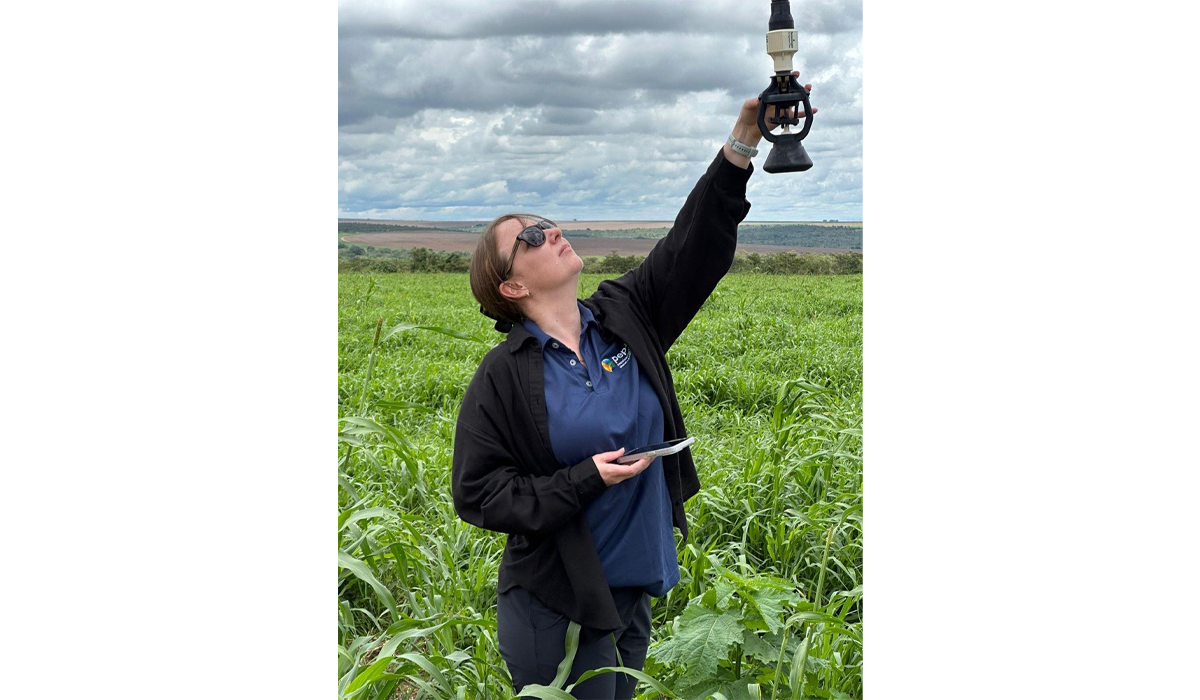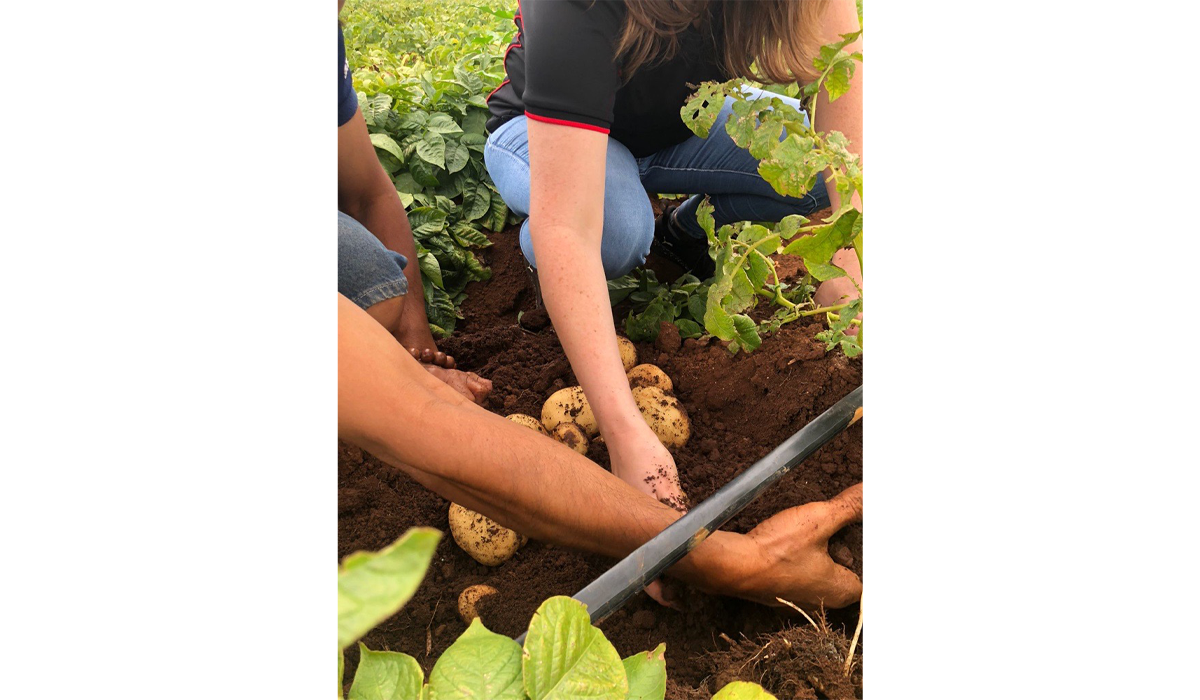It’s an early morning in Adelaide, Australia, and Miranda Allitt, Positive Agriculture associate manager for PepsiCo in Asia Pacific, is standing in a potato field outside of the city, talking about the recent rainfall. “There is one universal connection point for farmers and agriculture teams alike,” she says. “The weather!”
For Miranda and the team of PepsiCo agronomists around the world, weather is more than small talk. It’s a make-or-break factor in getting our foods from the fields to store shelves.
From oats for Quaker Oats to potatoes for Lay’s and Walkers to corn for Doritos, PepsiCo depends on more than 35 crops to make the foods people enjoy every day. Behind the scenes, our global network of agronomists and agriculture experts bring scientific and technological insights that help farmers grow high-quality ingredients more sustainably. This is vital to help build and maintain healthy soil that can sustain crop growing into the future, benefiting farmers, the planet and also PepsiCo’s business by helping to ensure crop supply into the future.

Miranda Allitt inspecting a water sprinkler at a potato supplier in Brazil to check for proper pressure.
Global insights, local expertise
These agricultural experts and partners in progress play a critical role in making farming viable for future generations. “We have deep rooted connections with farmers. We want to build their capabilities instead of just telling them what to do,” Miranda says. “Sustainability is a marathon, not a sprint. We want to grow alongside our farmers, and I think that’s what makes us different.”
They spend as much time as possible in the field, continuously collaborating with local farmers and bridging global insights with local expertise to adapt growing strategies to each location. “Every farm is different and every field is different,” says Christian Cerezo Rebe, an Agriculture Lead for PepsiCo in Southwest Europe. “We’re working to help improve the livelihoods of agricultural communities from which we source, supporting the farmers and sharing best practices for their region.”
In Thailand, this means helping potato farmers navigate a narrow seasonal window that is shrinking due to climate change — prompting a new strategy around which crops to grow, when and in what order. After conducting a risk analysis, PepsiCo agronomists collaborate with local governments and other experts to help local farmers implement rotational crops that help them turn a profit and enable them to still grow potatoes. “It gives them more resilience against climate shocks,” says Reuben Blackie, Manager of Sustainable Agriculture for Asia Pacific.

Female farmers in Vietnam digging up potatoes and checking the soil to gauge crop health.
Cover crops, earthworms and carbon reduction
Building this kind of resilience is becoming increasingly important as changing climate patterns, limited freshwater and declining soil health make it more difficult for farmers to grow crops. To address these challenges, PepsiCo is combining traditional methods of farming with new innovations — with the goal to drive the adoption of regenerative, restorative, or protective practices across 10 million acres by 2030. Regenerative agriculture takes many forms, from planting cover crops that keep a living root in the ground and enrich soil, to conserving water or improving the variety of plants and animals on farmland. In Spain, our agronomy team is partnering with the Earthworm Foundation to measure earthworm populations as indicators of soil health. And in Australia, we’re working with the Cool Soil Initiative to help farmers track and cut their greenhouse gas emissions with precision.
“We want to help farmers achieve goals within their operation while driving sustainability,” says Caitlin Colegrove, a Sustainable Agriculture Lead for PepsiCo in North America. “It’s about being a good partner and helping them stick with these practices over time, and ultimately seeing greenhouse gas reductions, water stewardship improvements and other benefits.”
These partnerships rely on constant communication. “In the middle of the season, we talk with the farmers every day,” Christian says. “If a farmer’s crop is reduced due to a hailstorm — I understand why. This helps build trust.”
In Spain, trust also enabled a major sustainability win. By partnering closely with farmers, PepsiCo became the first company to use green ammonia, a renewable nitrogen fertilizer, in potato crops. This resulted in a 15% reduction in the total emissions footprint of our potato crop in Spain.
It’s about being a good partner and helping [farmers] stick with these practices over time, and ultimately seeing greenhouse gas reductions, water stewardship improvements and other benefits.
— Caitlin Colegrove, a Sustainable Agriculture Lead for PepsiCo in North America
Passion for the future of farming
Farming takes a mix of science, determination and big-picture thinking — and farmers have to wear a lot of hats. They’re part scientist, part mechanic, part HR manager and part sustainability expert. “I love what I do because every day is different,” Christian says. “But this means there are also new problems every day, so you have to be passionate about agriculture and be willing to embrace change.”
Passion for agriculture runs deep within PepsiCo’s agriculture team, driven by a shared sense of purpose and curiosity. “Agriculture is ever changing and evolving, and I’m always learning and being challenged,” Miranda says. “I love that agronomy is scientific and practical all at once and it’s amazing to work in an industry that really matters. Agriculture feeds the world!”